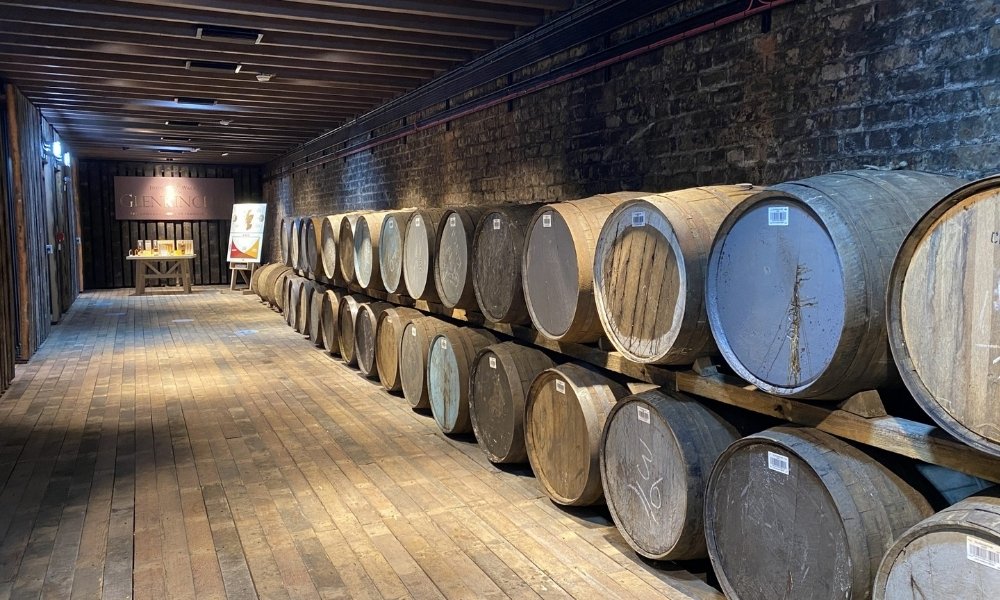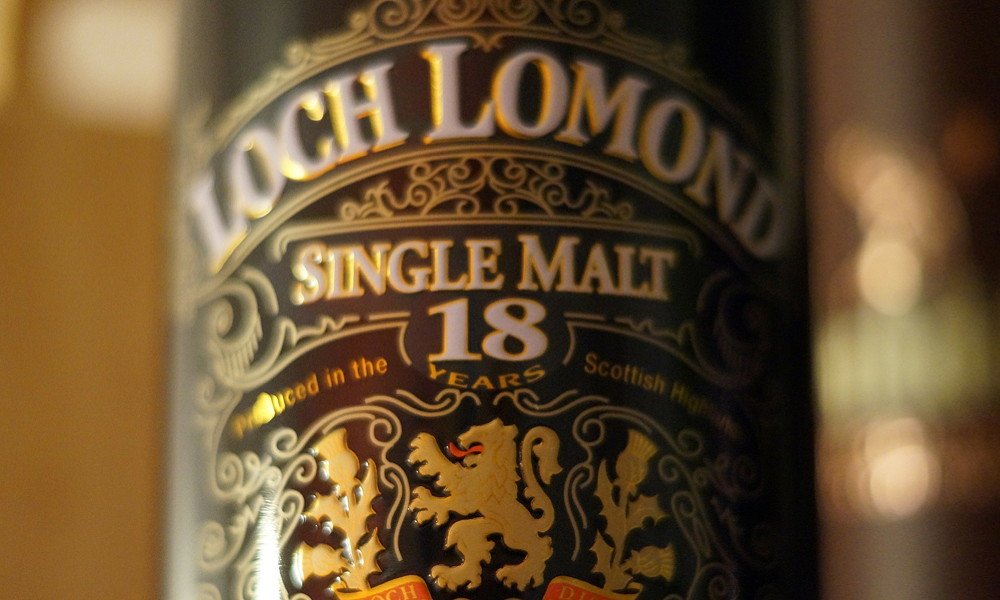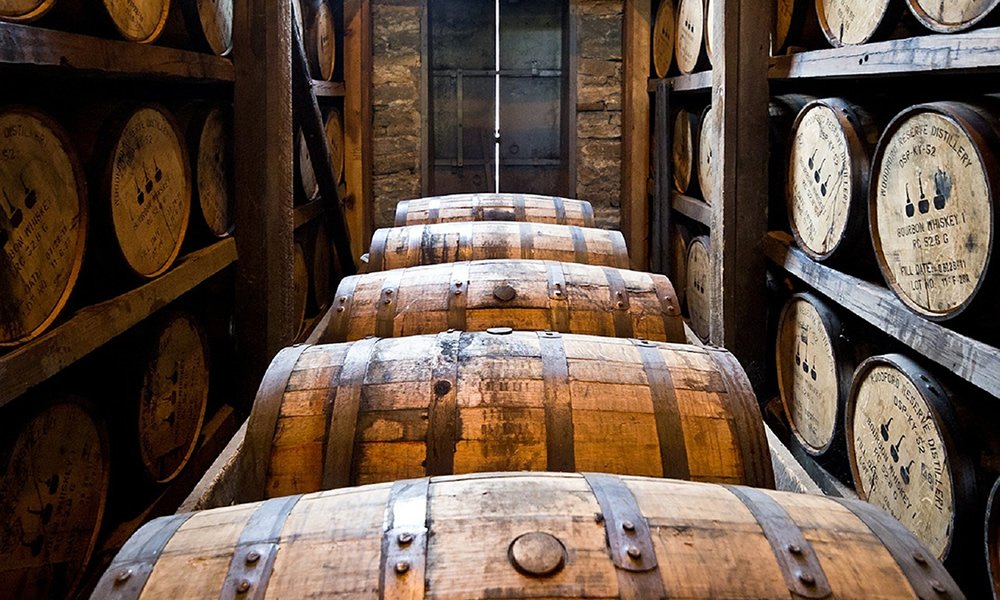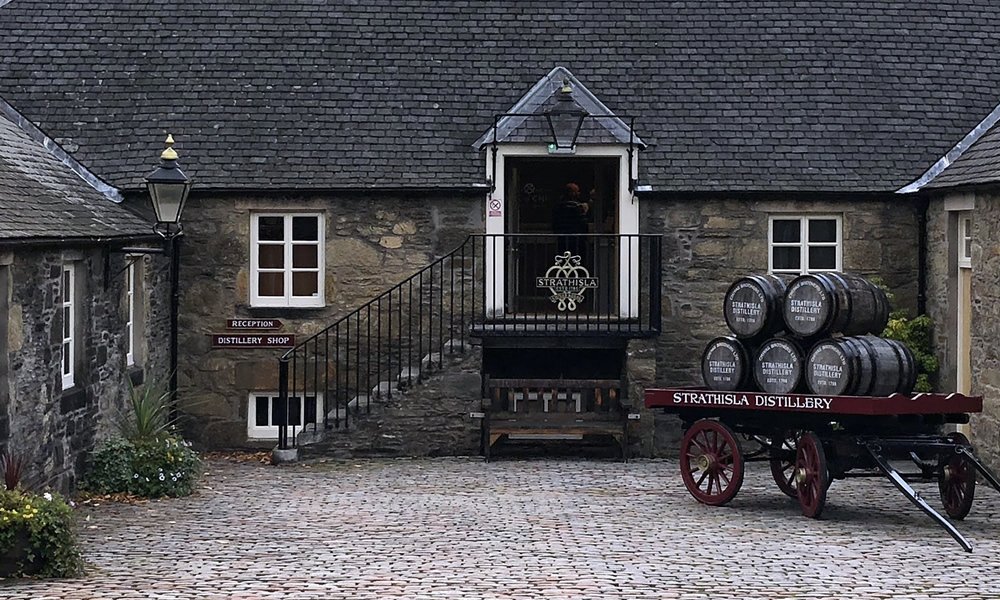Lowland /
Glengoyne
Glengoyne’s history begins around 1820 when founder George Connell begins producing bootleg whisky at Burnfoot farm (where the current distillery stands) before brokering a deal with the excise (tax man) and officially founding a distillery at the location in 1833. George took a 99 year lease on the land around a peaceful waterfall forming part of Glengoyne Burn that flows from the nearby Dumgoyne hill in 1836 which cements the location and production of whisky for generations to come.
Glengoyne passed through the hands of a string of different owners, including John McLelland and Lang Brothers of Glasgow. It was marketed under different names between 1875 and 1907 including Glen Guin and Burnfoot and whisky historians note the references to both the water source and original farm, believing that the name changes were attempts to associate with popular highland whisky production and move away from the Victorian reputation of Glengoyne’s proximity to Glasgow and therefore polluted waters.
In 1965 Glengoyne became part of the Robertson & Baxter group that subsequently evolved into the modern-day Edrington Group. Elspeth, Agnes and Ethel Robertson inherited the Scotch whisky business of their father and, keen to continue their tradition of supporting good causes in Scotland and the welfare of their staff, the sisters create The Robertson Trust. The trust owns all voting shares in the parent The Edrington Group. The Robertson Trust is still Scotland’s largest independent charitable trust, and is funded by the income of its shares in Edrington. Since 1961 the Trust has donated more than £152 million to charity, with a focus on supporting young people from deprived backgrounds into further education.
Glengoyne was rebuilt in 1966 and the number of stills was extended from two to three. This is unusual for distilleries who’s stills are normally counted in even numbers.
Three decades later in April 2003 blender Ian Macleod Distillers bought the distillery, which makes Glengoyne their first actual distillery. Despite the core business being blending (buying whisky produced at other distilleries and blending it into mass-produced whisky brands, the focus is for Glengoyne to stand on its own merits rather than to simply contribute to their core business. Glengoyne is now firmly on the map as a lowland (albeit marketed as Highland) malt.
A short walk east of the traditional distillery and outbuildings brings you to the famed waterfall that is still the source of water for the distillery and a recently added visitor centre and tasting room overlooking the peaceful glen. Beyond the distillery Glengoyne burn flows into the River Endrick and into Loch Lomond.
Unlike most distilleries in Scotland, Glengoyne has continually produced whisky since its inception to the modern day, arguably making it the longest continuously producing Scotch whisky distillery.
Glengoyne Distillery
By Killearn
Glasgow
G63 9LB



